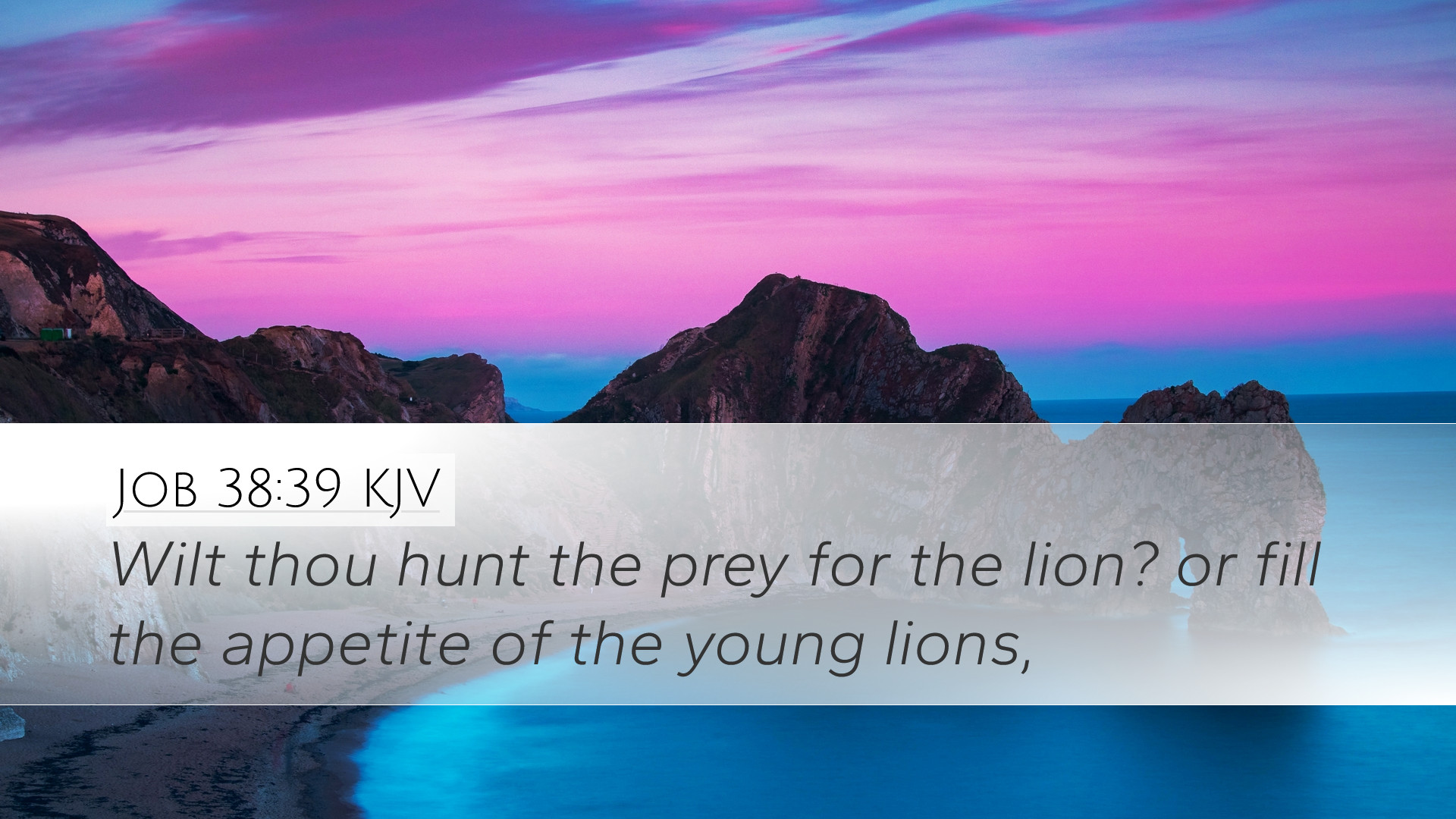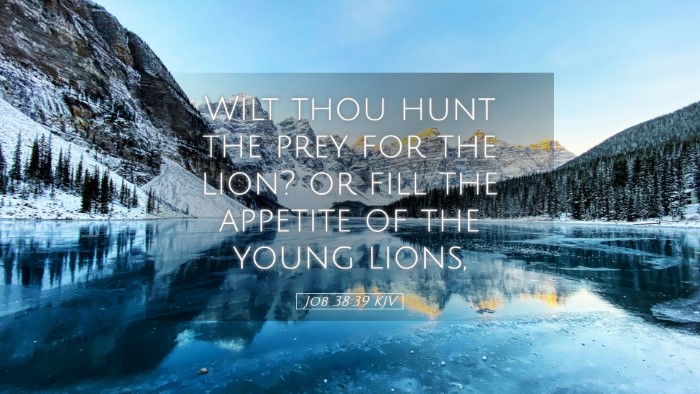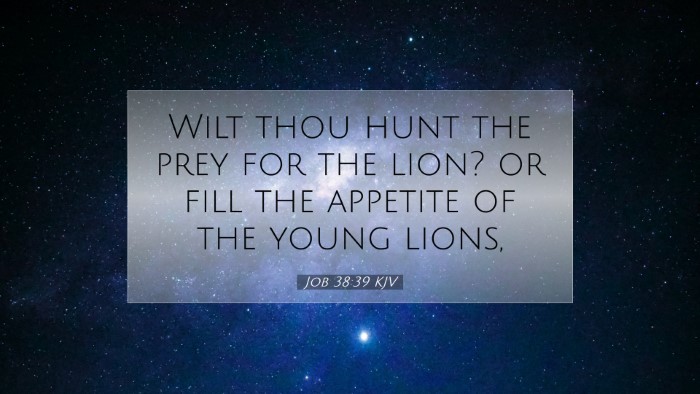Commentary on Job 38:39
Verse: “Wilt thou hunt the prey for the lion? or fill the appetite of the young lions?” (Job 38:39 KJV)
Introduction
The verse in focus, Job 38:39, comes at a pivotal moment in the Book of Job, where God responds to Job's lamentations and inquiries about suffering. This section of Scripture is characterized by a series of questions that highlight God’s creation authority and the mysteries of existence.
The Context of Job 38
As we delve into Job 38, we find God, out of a whirlwind, demanding Job’s attention. After a lengthy discourse filled with human misery and divine silence, God answers with profound questions that demonstrate His omnipotence and Job's limited understanding. It is crucial to interpret this passage in light of the entire dialogue between Job and his friends, where they attempted to understand the reasons for Job's suffering.
Exegesis of Job 38:39
This verse metaphorically poses two inquiries regarding the hunt and sustenance of lions – creatures symbolizing strength and power. The questions compel the reader to ponder the responsibilities and providence of God in the natural order.
“Wilt thou hunt the prey for the lion?”
Matthew Henry posits that this inquiry illuminates the idea that God, not man, orchestrates the lives of creatures within His creation. The imagery evokes the notion that God, as the Creator, provides what is fundamental to the survival of even the mightiest creatures. This directly confronts the pride of humanity, reminding us of our inability to govern the processes of life and survival that occur beyond our control.
“Or fill the appetite of the young lions?”
Albert Barnes expands upon this question, highlighting the natural instincts of young lions that depend on their environment for sustenance. This serves as a reminder of the significant roles that God designed for every creature. Each animal, particularly the young lions who are still learning to hunt, indicates the care and situational awareness that creation possesses. The thought evokes themes of dependency and providence, emphasizing that even the powerful young lions rely on God’s design for their needs.
Theological Insights
In considering Job 38:39, we must explore the theological implications of divine providence. Adam Clarke explains that this passage encapsulates the encompassing care God exhibits toward all living beings. It reveals the interconnectedness of creation, where one creature’s survival depends on another’s purpose, orchestrated under God’s omnipotent guidance.
The Sovereignty of God
The queries presented in this verse highlight God's sovereignty over nature and His continuous involvement in the lives of all creatures. While humans struggle with their circumstances, God remains in control, expertly managing the ecological tapestry. This understanding should invoke a sense of respect for creation and recognition of human limitations.
Human Understanding and Divine Plan
Job’s suffering is not easily comprehended. The questions God poses to him echo back the limitations of human reasoning. Job's friends had tried to reduce suffering to mere retribution. However, God directs Job's attention away from his suffering and toward the majesty of creation. This redirection serves as a humbling reminder of who Job is in comparison to God’s vast knowledge and control.
Application for Today's Believers
This passage carries profound lessons for contemporary readers, including pastors, theologians, and students of Scripture. The inquiries challenge believers to reflect on their dependence on God amid suffering and uncertainty. It serves as an assurance that God knows and provides for every aspect of creation.
- Humility: Recognizing our place in God's creation fosters a sense of humility before His majesty.
- Trust in Providence: Just as lions trust God for their sustenance, believers are reminded to trust in God’s providence for their needs.
- Awareness of Creation: The natural world serves as a constant reminder of God’s sovereignty. Engaging in creation care is a practical response to recognizing God's hand in everything.
Conclusion
Job 38:39 invites us into a deeper understanding of God's creative power and providential care. In answering Job, God does not provide the explanations he sought but instead reveals the splendor of His creation. Believers today are called to embrace awe and reverence for God's handiwork, empowering them to sustain faith amidst life’s mysteries. Thus, we emerge from this passage not merely with answers, but with a transformed attitude toward God, creation, and our role within it.


